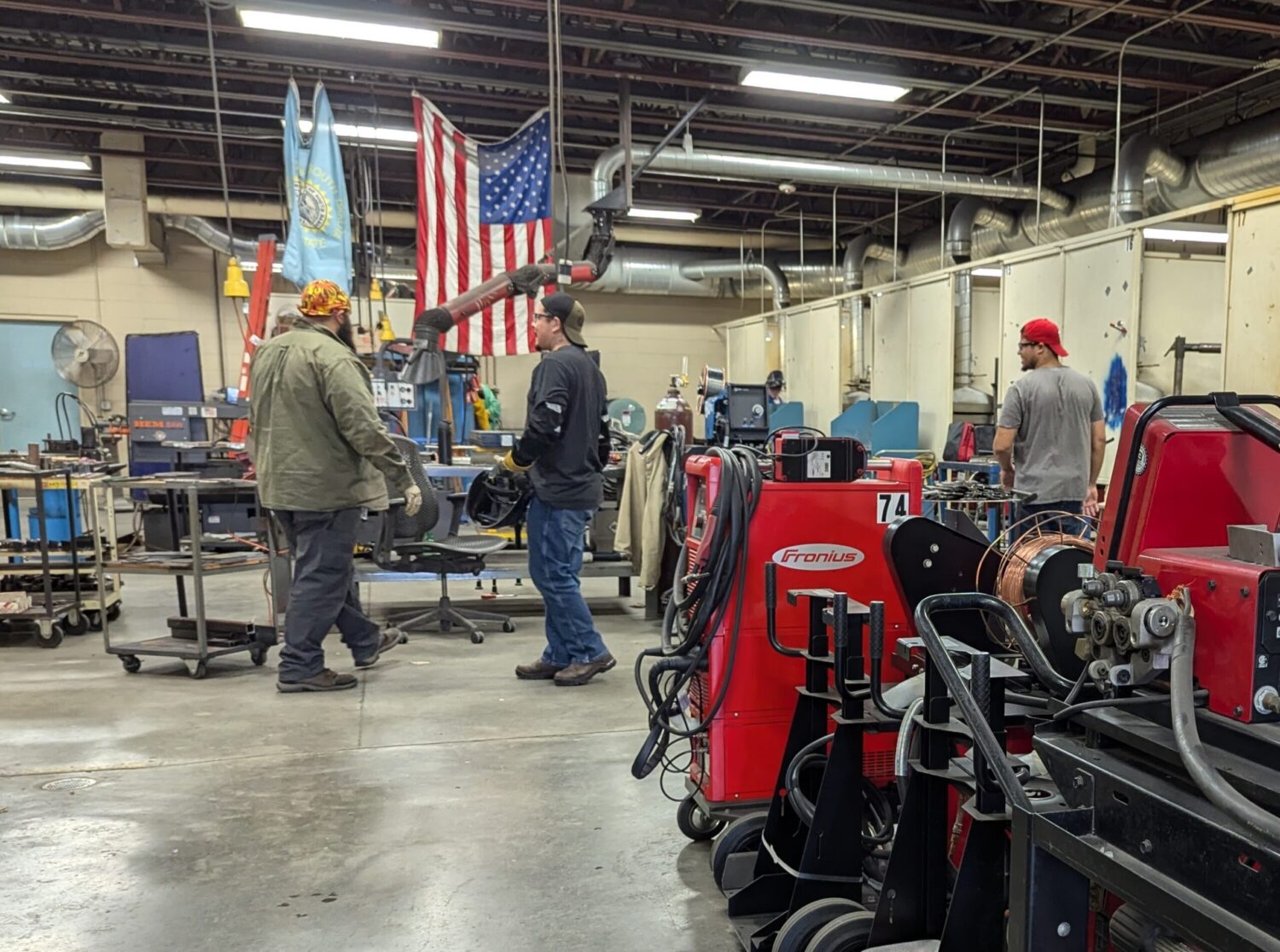
John Hult/South Dakota Searchlight
The South Dakota Department of Corrections will not offer a promised diesel mechanic training program in a space once occupied by a privately run metal shop that paid inmates market wages.
Last August, the DOC and Southeast Technical College got approval from the state Board of Technical Education to expand the college’s diesel program into the maximum security Jameson Annex in Sioux Falls.
Training inmates to fix diesel engines would “create opportunities within our community to meet the workforce needs of trades careers,” according to the school and the department’s application to the board.
The application anticipated an August 2025 opening.
Corrections spokesman Michael Winder told South Dakota Searchlight last week, however, that the school was unable to secure funding to purchase the equipment needed to operate the program inside the Sioux Falls prison.
Jennifer Lambley of Southeast Tech said ongoing debate about the potential construction of a new prison was partially to blame for the decision to freeze talks on the diesel program. The school had been in discussions with the nonprofit Vera Institute of Justice on potential funding.
“We believe it’s important to pause and more deeply consider how this initiative fits into South Dakota’s broader plans for addressing long-term prison infrastructure and programming needs,” Lambley said.
Winder and Lambley both said that the school and DOC still aim to expand programming for inmates eventually.
“We remain fully committed to providing high-quality, workforce-relevant education to individuals in custody,” Lambley said.
Job training factors into prison construction talks
The diesel engine program was set to fill the now-empty space occupied for more than 20 years by Metal Craft Industries, a company that says it was pushed out of the prison system by administrators. Corrections Secretary Kellie Wasko said the company left voluntarily to avoid adhering to newer, stricter security protocols.
The owner of another private business that had employed female inmates in Pierre, Badlands Quilting, also accused the state of pushing it out the door last year.
The shuttered metal shop’s status came up briefly during a meeting of the Project Prison Reset group last week in Pierre. Consultants with the firm Arrington Watkins said the shop was empty when they toured the Jameson Annex of the South Dakota State Penitentiary in Sioux Falls a few months ago.
The work group is focused on building options that might relieve inmate overcrowding, but its members have also focused on repeat offense rates, reentry programming, job training and post-incarceration placement.
Many task force members and members of the public who’ve appeared at the meetings have argued that the state needs to do more to improve the chances for inmates who return to their communities after serving a sentence if it ever hopes to address long-term growth in prison populations.
Last week, the group voted to cap spending on a new prison at $600 million. That’s less than the consultants suggested would be necessary to build one big enough to meet current needs and address future growth projections.
Sen. Jamie Smith, D-Sioux Falls, lamented that the cap could hamstring efforts to design a facility capable of training current inmates to become rehabilitated, contributing members of their communities.
Smith didn’t mention Metal Craft Industries last week, but the controversy surrounding its departure sparked a host of questions from lawmakers last year on the role of work programs within the DOC.
Inmates at Mike Durfee State Prison work for the Governors Home program, which builds houses, duplexes and day cares for people under certain incomes and communities that meet certain guidelines.
The state also operates a handful of shops under the banner of Pheasantland Industries, including an upholstery shop that outfits prison cells and a sign shop that prints license plates and road signs.
Metal Craft and Badlands Quilting paid inmates market wages. Some inmates paid off their restitution and child support with their Metal Craft paychecks, and employees of both private businesses paid room and board to the state. Most prison jobs, by contrast, pay about 50 cents an hour.
Some empty classrooms, but partnerships remain
During previous Project Prison Reset meetings, inmates and their family members said extended lockdowns across the system have served as an impediment to job training programs, kept shops from running full-time and otherwise hindered inmates’ opportunities to better themselves.
“There’s classrooms in here that sit empty half the time,” inmate Samuel Lint told the group through a cell phone in early April.
Programs that train inmates outside prison walls have had success, though.
Twelve minimum custody inmates graduated with welding certificates from Southeast Tech last fall, adding to the 57 who’d completed the training since 2022. The welding certificate program is funded with help from the state Department of Labor.
Past cohorts have had an average graduation rate of more than 80% and a similar job placement rate, an announcement on the fall graduation said. The money from the Labor Department covered the cost of books and equipment for inmate students.
Dawn Dovre, spokesperson for the department, told South Dakota Searchlight in an email that part of the funding is from the U.S. Department of Labor.
“As always, if there are changes to these programs or budgets nationally, adjustments to service delivery will be made,” Dovre said.
The Department of Corrections also offers Career and Technical Education courses in precision machining for male offenders at Mike Durfee State Prison in Springfield through Lake Area Technical College.
That program didn’t field a cohort in the spring, according to Tiffany Sanderson, Lake Area’s president, but not for a lack of funding.
The former instructor left last fall, and Sanderson said it’s been hard to fill that position.
Offenders at the Rapid City Minimum Center can enroll in a plumbing course at Western Dakota Technical College. That school’s spokesperson told South Dakota Searchlight that five inmates graduated from the course this spring.
